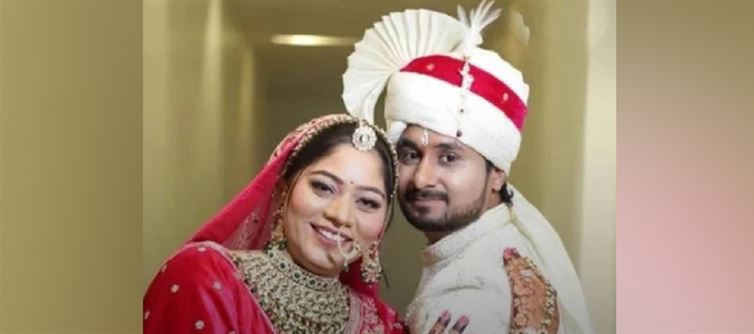
The unfolding events surrounding the mysterious murder of Indore’s transport businessman raja Raghuvanshi have taken a bizarre turn. While the court is still hearing the case and justice is yet to be delivered, the slain businessman’s own family has announced a film project titled Honeymoon in Shillong, based on the very incident. What’s even more astonishing is that the announcement came via a press conference held at their residence, turning what many view as a moment for grief and silence into a media event. The idea that a grieving family would launch a cinematic project while legal proceedings are still underway has sparked widespread disbelief and criticism.
Many are now questioning the apparent insensitivity of the family members, especially given their behavior since raja went missing. His sister, in particular, was seen actively posting instagram reels and promoting products even during the critical days of his disappearance and eventual death. It wasn't just that she remained online—it was the tone and timing that unsettled people. When most families would retreat into mourning or seek answers from law enforcement, hers became a public-facing, almost promotional narrative. And now, the brother choosing to greenlight a movie based on the tragedy adds to the perception that the family may be prioritizing attention, commercial gain, or personal agendas over dignity and grief.
This entire episode raises uncomfortable but important questions about the boundaries of personal tragedy, public spectacle, and emotional detachment. In a culture where mourning and loss are usually observed with solemnity, the Raghuvanshi family’s behavior appears deeply out of sync. While they have every right to tell their story, the timing and manner in which it’s being done—during an ongoing investigation and trial—strikes many as tone-deaf. Their actions have turned a murder mystery into something resembling reality television, and for a grieving public that still seeks answers, this spectacle is not just inappropriate—it’s deeply unsettling.
Many are now questioning the apparent insensitivity of the family members, especially given their behavior since raja went missing. His sister, in particular, was seen actively posting instagram reels and promoting products even during the critical days of his disappearance and eventual death. It wasn't just that she remained online—it was the tone and timing that unsettled people. When most families would retreat into mourning or seek answers from law enforcement, hers became a public-facing, almost promotional narrative. And now, the brother choosing to greenlight a movie based on the tragedy adds to the perception that the family may be prioritizing attention, commercial gain, or personal agendas over dignity and grief.
This entire episode raises uncomfortable but important questions about the boundaries of personal tragedy, public spectacle, and emotional detachment. In a culture where mourning and loss are usually observed with solemnity, the Raghuvanshi family’s behavior appears deeply out of sync. While they have every right to tell their story, the timing and manner in which it’s being done—during an ongoing investigation and trial—strikes many as tone-deaf. Their actions have turned a murder mystery into something resembling reality television, and for a grieving public that still seeks answers, this spectacle is not just inappropriate—it’s deeply unsettling.




 click and follow Indiaherald WhatsApp channel
click and follow Indiaherald WhatsApp channel